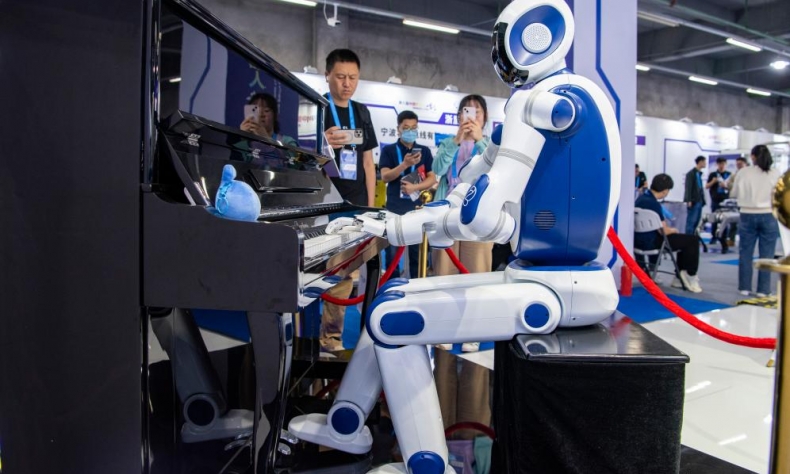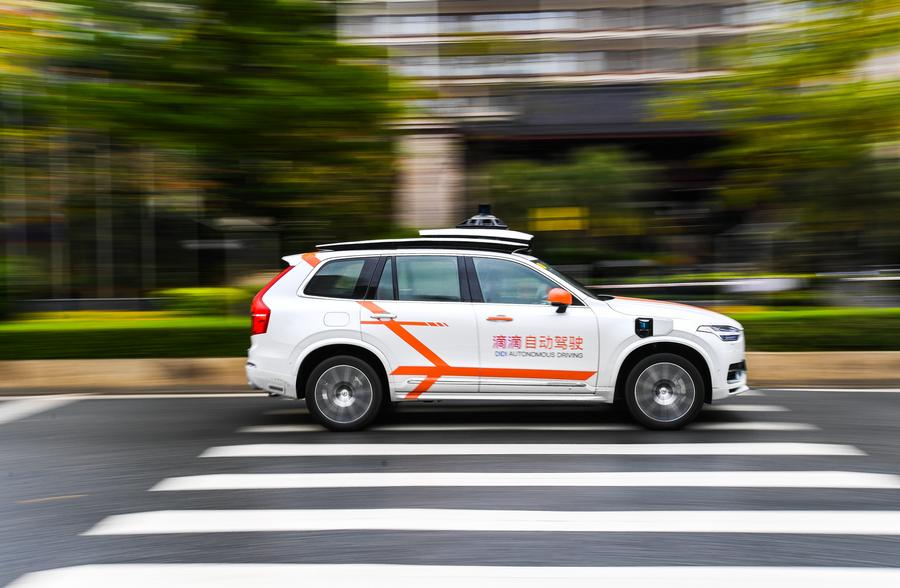The Rise of the Intelligent Economy

AI presents a historic global opportunity, and China will continue to increase its investment in AI research and application and promote the integration of AI technology into other industries.
As China continues its transition to higher-quality economic development, it is increasing its reliance on new quality productive forces, those driven by innovation and new technologies such as artificial intelligence (AI).
In addition to lifting traditional industries to a higher-end, smarter and greener level, the concept of new quality productive forces calls for fostering new industries such as bio-manufacturing and commercial spaceflight, advancing the digital economy and integrating digital technologies into the real economy.
While development of AI in the West began in the 1950s, China did not begin conducting its own AI research until the end of the 1970s, with the Chinese Association for Artificial Intelligence established in 1981. Despite its later start, China’s AI research is among the most advanced in the world in some areas. China now ranks first in its number of AI research papers, AI patent applications and the scale of its AI industry and research.
The development of AI is now part of China’s national strategy. In 2017, China released the New-Generation Artificial Intelligence Development Plan, which set the goal of reaching global forefront in AI by 2030. The rapid development of the industry is not only attracting strong investment in AI-related research, but also fueling an increase in the number of AI-related university programs.
AI technology is having a positive impact on China in many fields. Technologies and products are emerging in intelligent driving, smart homes and smart cities, and breakthroughs are being made in fields such as smart chips and general large language models. People are becoming accustomed to AI-powered technologies, such as autonomous vehicles and aircraft, automated factories and kitchens, and contactless supermarkets.

According to statistics from the Ministry of Industry and Information Technology, the scale of China’s AI core industries has rapidly grown to more than 500 billion yuan ($69.06 billion), and the number of related enterprises is now over 4,300. Through stronger basic research and industrial application, as well as increased policy support and education, China is cementing its place as a leader in AI technology. It has the world’s largest market and the largest number of Internet users, which provide huge additional support for its development of AI.
China is also strengthening international cooperation in the development of AI, especially with the United States. As the world’s two largest economies, development and competition between China and the United States in AI development is attracting global attention. China has a lot to learn from the United States in the depth and breadth of its AI research, especially in algorithms, toolboxes and software frameworks.
Like elsewhere in the world, AI development also creates ethical risks in China, and the country is carrying out research on AI ethics to ensure that technological development remains in line with social ethics.
AI presents a historic global opportunity, and China will continue to increase its investment in AI research and application and promote the integration of AI technology into other industries. Doing so will drive the creation and enhancement of new quality productive forces, accelerate the transformation of the economy and promote high-quality development characterized by innovation, coordination, greenness, openness and inclusiveness.
 Facebook
Facebook
 Twitter
Twitter
 Linkedin
Linkedin
 Google +
Google +










